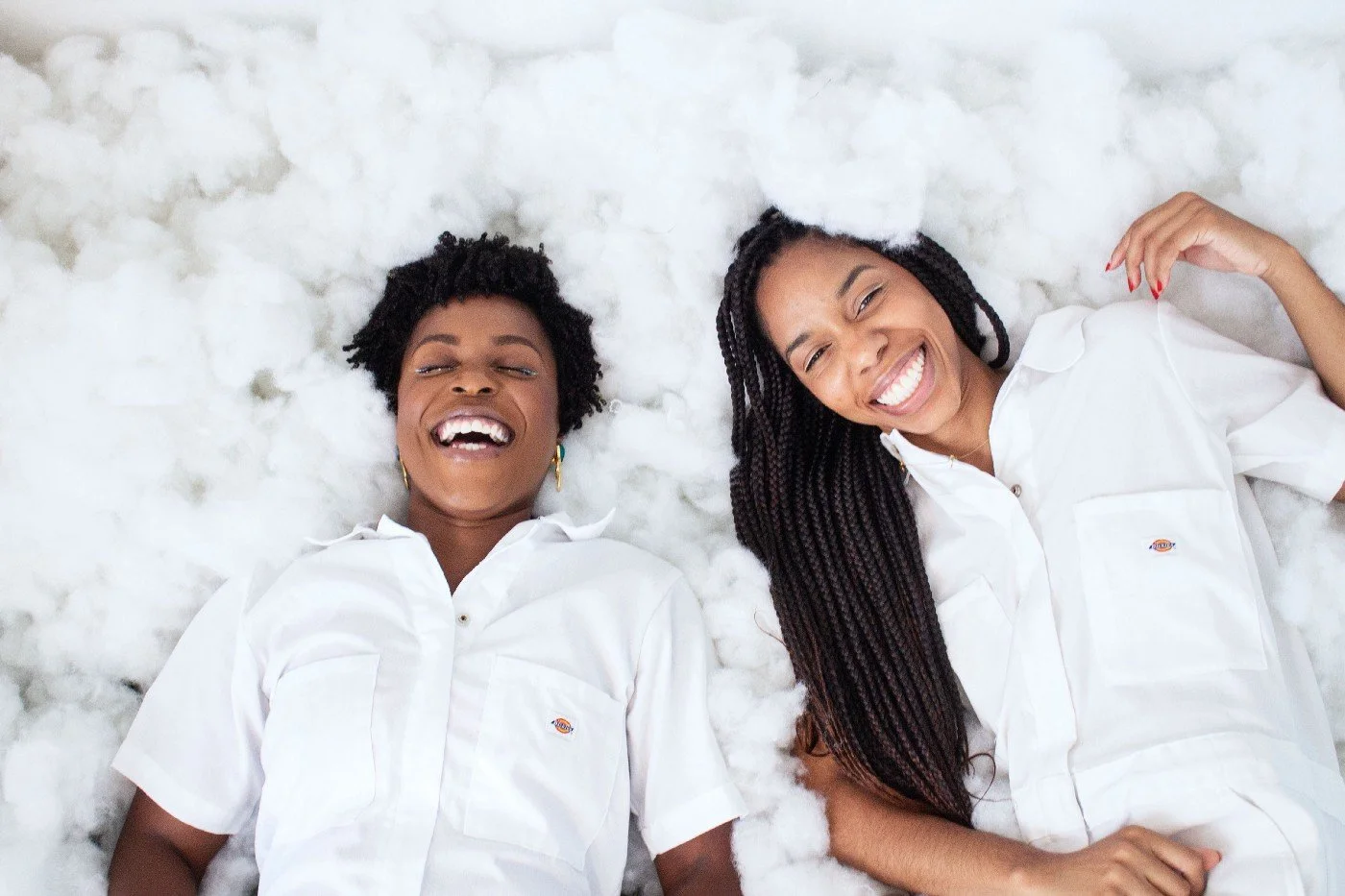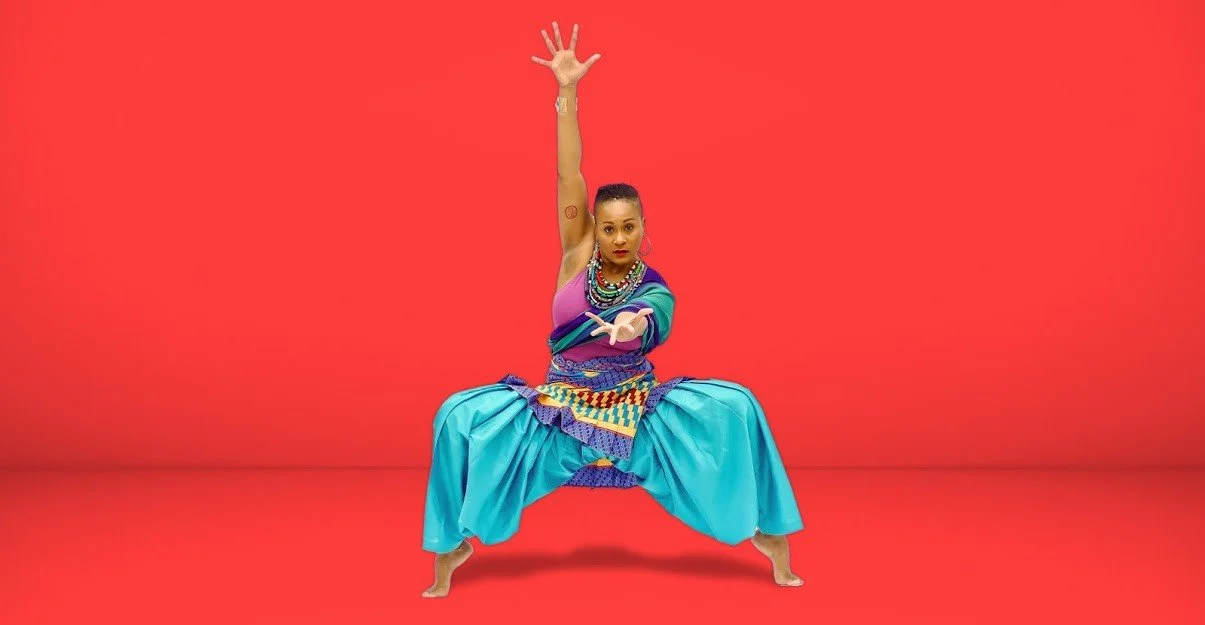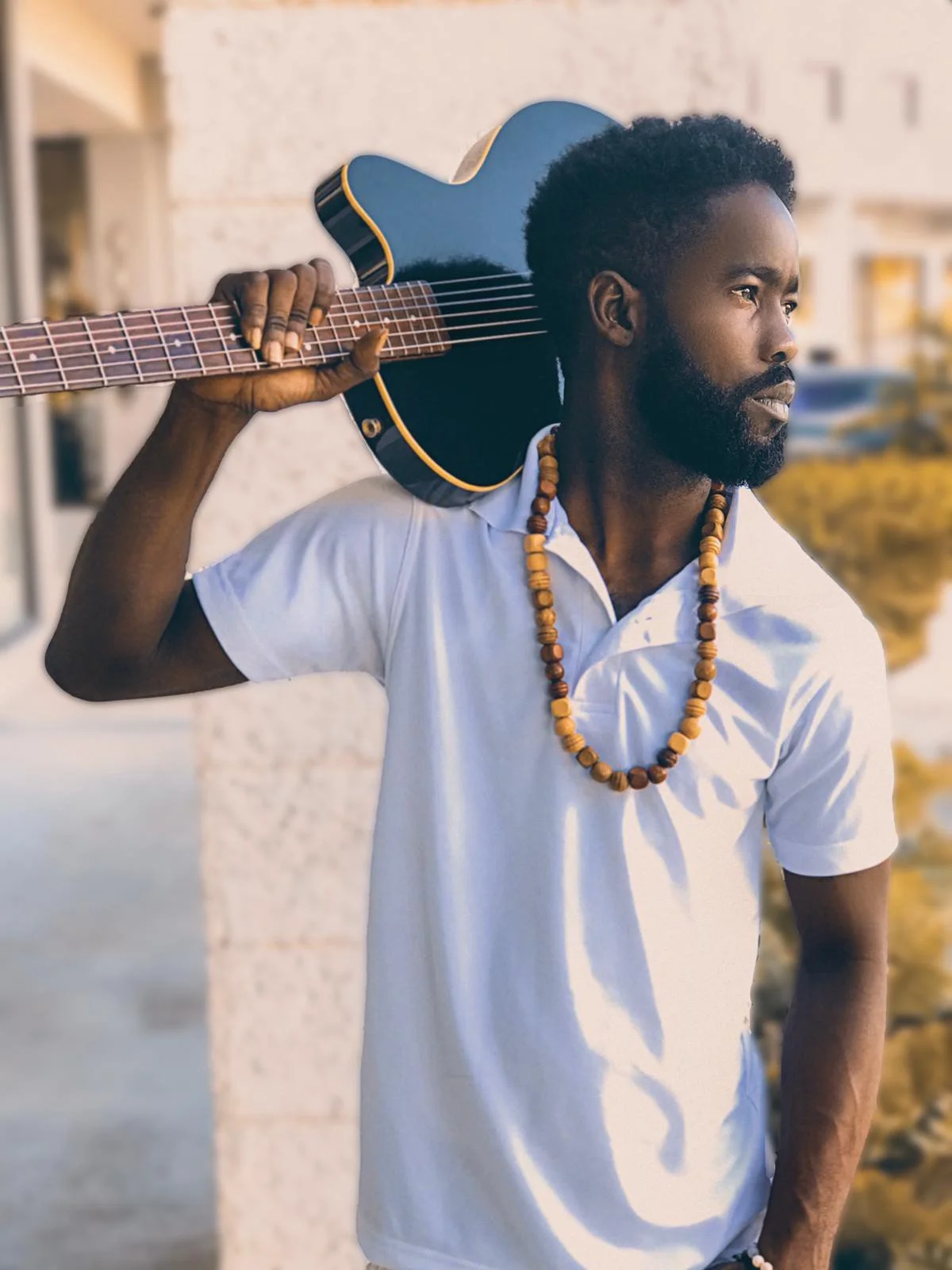Taking Up Space & the Cultural Impact of Black Music: An Interview with SiriusXM’s Dion Summers
Written by: Kaila Cherry
Radio is a hallmark of American culture. Radio is where many of us first develop our ear for music, news, and pop culture. The radio excited me as a child in my mother’s car. I had developed a love for, and looked forward to hearing, certain songs through their constant play. I have always cherished radio but was not in tune to what happens behind the scenes. I wondered how stations chose which songs get played or how the landscape of broadcasting changed over time. I sat down (over Zoom of course) with Dion Summers, the Vice President of Urban Music Programming at SirusXM Radio. We talked history, the influence of Black culture on popular music, and his experience navigating the media/entertainment industry as a Black man.
Kaila Cherry: Tell me little a bit about who you are, what you do, and where you currently are in your career.
Dion Summers: My name is Dion Summers. I am the Vice President of Urban Music Programing for SiriusXM, which is just a fancy way of saying that I manage a team of about 10 radio program directors who are all responsible for the content of our R&B, Hip Hop, Gospel, and Reggae formatted radio stations. I am a child of radio. I worked in FM radio for about 15 years before coming into the satellite end of things. I’ve been in satellite radio now for about 15 years. We effect no fewer than about 35 million potential ears per week of R&B, Hip Hop, Gospel, and Reggae music fans. The songs that we research and get metrics from determine the playlists for our radio station. We determine the talent for our radio stations and the overall branding for our radio stations. So yeah, I consider it to be a blessing to do what I do.
KC: I want to get into some of your early days in radio. You went to Syracuse University in the early 90s and participated in their radio program during your time there. I’m curious to know what your experience at Syracuse was like in the 90s and what it was like trying to incorporate your music tastes into student radio at the time.
DS: Almost everything I went through at Syracuse and with college radio prepared me for the job that I have today. I was forced to work with a bunch of people who didn’t look like me and who didn’t get my vision. I was Program Director for one year at Syracuse. Our radio station wasn’t your typical college radio station where anyone could come in and play what they wanted. We had a station for that. The station I worked at Syracuse, Z89, was formatted specifically for students who wanted to get into the radio business. We had a distinct format and we had to adhere to that format, which was largely based on the Top 40 hits of the time. The Program Director could choose what lean they wanted to take within that Top 40 space. When I took on that role in 1993, it was at the height of Dr Dre’s The Chronic and Snoop Dogg’s Doggy Style. It was the advent of Hip Hop on the radio. These were stars of Pop music who made Hip Hop.
I decided that for my year as Program Director at Syracuse that I was going to go Top 40 with an Urban lean. People would say “He’s being biased,” “He’s only playing music that he likes,” “He’s not being objective enough as a program director.” But the numbers didn’t lie. Doggy Style was the number one Billboard Top 200 album in the country. Every Black person can buy an album and it won’t go number one. These are white consumers loving this music. I had to have tough conversations at a young age about being an objective Program Director and being at the table with people who didn’t agree with me. I still have those same conversations in these same rooms with different white people today who try to challenge my objectivity and decision making abilities. The biggest lesson that Syracuse had instilled in me is that you’re going to be in rooms with people who don’t agree with, many who don’t even personally like you, but at the end of the day they have to respect you. I’m bringing facts, I’m bringing metrics, and I’m bringing numbers to support the overall mission of whatever business I work for.
Dion Summers on air at Syracuse University. (Source: Syracuse Univeristy Alumni Association)
“The biggest lesson that Syracuse had instilled in me is that you’re going to be in rooms with people who don’t agree with, many who don’t even personally like you, but at the end of the day they have to respect you.”
KC: You mentioned that 1993 was one of the first years that Hip Hop got the mainstream attention that it now has today. Some see the popularity of Hip Hop today, especially by non-Black audiences, as a form a cultural appropriation and commodification. Others see this popularity as a vessel for cultural sharing and exchange. What has been your response to this as someone who has watched the growth of Hip Hop first hand?
DS: The gift and the curse is that you gotta give your culture away. This has been the case forever. Not even limited to Hip Hop, we see this in Jazz, we see this in Rock and Roll. We have to freely release our culture to the world because that is going to happen regardless of whether we like it or not. It is a gift in the sense that what we have home grown, what we have seeded, what we have watered, what we have grown and what we have nurtured is becoming so widely acceptable. The curse is that feelings of “I thought that was our thing.” If you’re blessed to be in whatever lane you’re in, you’ve gotta be okay with giving it away. I didn’t always think this way. I remember growing up, the first time I heard a white person say “Yo” I was like “What? That’s our word.” But it just goes to show how powerful Black culture truly is. With that being said, I do believe it’s important to recognize the origin of these things. When there’s a Chuck Berry, there’s a white Chuck Berry. When there’s a Whitney Houston, there’s a white Whitney Houston. We have to understand where this stuff originated from. Point blank. Period. End of story. Let’s recognize and respect the origin. Let’s acknowledge the fact that Hip Hop originated in the Bronx about five miles from where I’m sitting right now. As long as we can respect the roots, this tree can grow as tall as it wants to grow.
Dion Summers photographed for 92Q by Glenwood Jackson.
KC: Another point during the progression of your career was your time working for FM radio in Baltimore, Maryland. How does working for a local radio station compare to working for SirusXM which is broadcast to listeners all across the country?
DS: My first gig out of college was working in Baltimore, Black Baltimore. I worked at my hometown radio station called 92Q. Back then, Baltimore was I believe about 60% or more Black in the Metro. There was a sense of pride at 92Q because we were a Black radio station owned by a Black woman programming music for Black audiences. We could talk about politics. We didn’t hold our tongue when it came to who we wanted our listeners to support or when it came to taking about the importance of voting. Listeners knew what side of the tracks we were coming from and there was a sense of alignment between the programmers and our audience.
The key difference is that now working for SirusXM Pandora, the audience is national. The music, the programming, and the presentation have to be Black enough for the audiences in Baltimore, Latinx enough for the listeners in Phoenix, and white enough for the listeners in Spokane while making it all connect and make sense. Unlike working at 92Q, many of the listeners of The Heat couldn’t care less about our political opinions. Now that I’m working on a national platform, I have to make sure that I ingratiate the most while offending the least.
KC: Today, there are so many different ways in which people can listen to and discover new music. There’s Spotify, Soundcloud, Youtube, Apple Music, Tidal, and so many more streaming platforms all competing for an audience. For lots of people, the prevalence of these streaming services have made radio a less popular vessel for music discovery. How have you navigated the rise of streaming over the last decade as a radio programmer?
DS: You gotta cast your net wider and it takes a team to do it. Gone are the days when you had a stack of CDs on your desk. You need a team of people to be where you can’t be and to hear what you can’t hear. I like to think of myself as up on what’s popping, but one person can’t do it all. That’s why I have people who look at the metrics, look at the data, and study playlists so they can tell me what’s hot in the streets before it hits any radio stations. Because of this, we can also help to boost songs that aren’t on anyone’s radar yet. That’s the test of my team: Find the songs before they’re on everyone’s playlists, find these records before they get millions of streams. I can take a record that’s streaming for the gods and put it on my radio station before it gets any radio play anywhere else and look like a hero. FM radio is not looking at these metrics. Take the song “Internet Money” by Lemonade. We were able to see that the track was the fifth most streamed song in the country yet saw that it was getting zero radio airplay. For us at SirusXM, playing that on our Rap/Hip Hop station was a no brainer. FM radio isn’t taking leaps like that. We also really have to pay attention to trends. By definition, trends come and go but you have to know when something is popping enough to stay with it.
KC: Your job title at SirusXM is “Vice President of Urban Music Programming.” Earlier this year, when Tyler the Creator was interviewed after his album Igor won Best Rap/Urban Contemporary Album of the Year, he said that although he was grateful, he felt that having his work put into the “Rap” category was a backhanded compliment and that the term “Urban” was “just a socially acceptable way of saying the N-word.” What is your opinion of the use of the term “Urban” in the modern music landscape?
DS: My boss had asked me a similar question about the term “urban” after the murder of George Floyd. What I told him was that I wasn’t going to get caught up in the wording. These are all semantics created by white people. Let’s go back to the history of the term “urban.” “Urban” was a term used in radio sales to make salespeople more comfortable selling Black radio to white audiences. They didn’t call it “Black” because they didn’t want to offend advertisers like McDonalds or Joe’s Tire and Auto from down the street. The chart used to be called the “Hot Black Singles Chart,” then it was the “Soul Chart” then it was the “Race Chart” and all of these terms served the same purpose: To make white people comfortable with Black culture. So here we are again with the term “urban.” I understand why we are at the point we are with calling it “urban.” For a deep dive, I’ll tell you that I specialize in R&B, Hip Hop, Gospel and Reggae, but if you just need an umbrella term to make yourself feel better, then it’s “urban.” At the end of the day, changing the terminology will not stop Black folks from getting shot, that won’t stop Black folks from dying, that won’t stop Louisville from not charging the killers of Breonna Taylor. If SirusXM wants to change my title I’m fine with it and if they don’t want to change it I’m fine with that as well. I know who I am, what I’m doing, and who I do it for. It’s Black music, period. If you don’t wanna have that granular conversation, then call it what you want. I still have a place at this station and I still have a place at this table no matter what you call me.
KC: Your programming ranges from the most current hits to the classics. Who are some of your favorite contemporary artists and who were your favorites when you first started your career in radio?
DS: I love what Chance the Rapper is doing for the culture and the energy he brings to the scene right now. As a music fan, I see Drake as the epitome of all things Michael Jackson, James Brown, and Stevie Wonder. I see him as the best of all the greats who have fused together to make him so dope. I love DaBaby just because he gives no f’s at all. I see him as sort of the Issa Rae of Hip Hop. Hip Hop had to come from a foundation to get where it is now, just like film and television, in order for people like Issa and DaBaby to sit at the top of the hill and say, “This is me taking the lead and being myself while doing it.” He’s talented and unafraid to be who he is. When I was coming up, I loved Whitney Houston. I was also a really big fan of what is now “classic hip hop.” The cool thing about my job is that I now work with so many of these artists who I looked up to as a teenager. I’ve worked with LL Cool J and I remember buying his album when I was fifteen. That’s so bizarre and amazing as a radio guy.
Dion Summers with LL Cool J to celebrate the launch of Rock the Bells Radio, 2018.
KC: What advice, musings, or wisdom would you give to Black youths trying to break into the media industry?
DS: Never underestimate the power of relationships. Always, always, respect relationships because you will see these people for the rest of your life. Understand your seat at the table and create your own space. I would go to meetings and be the only Black manager in the room and I would feel so awkward. I wouldn’t laugh at the jokes they laughed at. I would make myself feel like I didn’t belong. Then I had to get spiritual about it. God knew what he was doing when he put me at that internship 30 years ago. I had to remind myself that I have earned the right to be where I am today. It’s very important to have a certain level of confidence with yourself, something I know this generation is not lacking by any means. Understand where you are and build on that. I can bring up meetings where if I hadn’t spoken up, you would have heard things playing on my platform that may have made you scratch your head and maybe even have insulted you. But because I was at that table at that moment and in that conversation, those questionable ideas never went through.
Never be afraid to speak up. Don’t worry as much about what other people will think. Don’t concern yourself with how people are going to perceive what you say. Lastly, connect yourself with something real. Family, friends, a partner, someone at the end of the day who you can connect with. What’s real are the conversations you have with those who genuinely love and care about you. You have to have that foundation. Without it, you will get so lost in this game. All in all, respect relationships, understand your place at a table, and connect with people who are real, who can support you, and who have your back.
You can listen to Dion Summers everyday from 12 pm EST to 6 pm EST on SirusXM’s Hip Hop/ R&B channel, The Heat Channel 46. He also hosts a weekend show on The Heat called Weekend Countdown. Keep up with Dion Summers on Facebook, Instagram, and Twitter through @DionDeezy.








